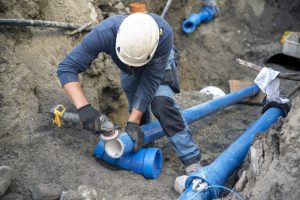 Recent legislative changes under Senate Bill 900 (SB 900) have made notable updates to the Davis-Stirling Common Interest Development Act. These changes are especially important for California homeowners’ associations (HOAs), as they directly impact maintenance obligations, reserve funding, and emergency financial planning. Here’s what your board needs to know and how your HOA can prepare.
Recent legislative changes under Senate Bill 900 (SB 900) have made notable updates to the Davis-Stirling Common Interest Development Act. These changes are especially important for California homeowners’ associations (HOAs), as they directly impact maintenance obligations, reserve funding, and emergency financial planning. Here’s what your board needs to know and how your HOA can prepare.
1. Expanded Utility Repair Responsibilities (Civil Code §4775)
SB 900 clarifies and expands an HOA’s duty to repair and replace utility systems that originate in the common area—even when those issues extend into exclusive use areas or individual lots.
Key Changes:
- Who’s responsible? Associations are now explicitly responsible for repairing interruptions to gas, heat, water, or electrical service when the problem begins in the common area—even if the repair needs to go into a homeowner’s unit to resolve the issue.
- Timing matters: The Association must begin necessary repairs within 14 days of the service interruption.
- Flexible decision-making: If a board quorum can’t be reached within that 14-day window:
- Subsection (b)(3): The board may meet with a reduced quorum based on who is available. In some cases, a single director may be able to authorize necessary action.
- Subsection (b)(4): The board may vote electronically (i.e., email).
Why This Matters:
This amendment could broaden the scope of HOA responsibilities and may impact your maintenance contracts, repair policies, and response protocols. Associations should review how quickly they can respond to service disruptions—and ensure their governing documents and contractor agreements align with these new requirements.
2. Reserve Funding Adjustments (Civil Code §5550)
SB 900 also amends Civil Code §5550 to redefine what qualifies as a “major component” in your reserve study. The law now includes utility infrastructure—gas, water, and electrical lines—if your HOA is responsible for them under the new Civil Code §4775.
What This Means:
- Associations must now include these utility systems in their reserve study.
- Reserve study professionals will be expected to estimate the useful life and replacement costs of these systems.
- Boards should plan for long-term funding of these infrastructure components, starting as early as possible.
3. Greater Flexibility in Emergency Funding (Civil Code §5610)
The amendment also broadens the definition of an “emergency situation” that allows HOAs to exceed regular assessment increase limits.
What’s New:
Associations can now raise funds beyond the standard caps when:
- There is a threat to personal health or safety, or
- Hazardous conditions exist that require immediate response.
This provides greater financial flexibility—but also highlights the need for proactive planning and realistic reserve goals to avoid budget shortfalls during critical times.
| Next Steps for Your Association For any HOA, especially those with complex utility infrastructure, these changes are significant. Here’s what you could do:
|
 HOA Lawyer Blog
HOA Lawyer Blog

